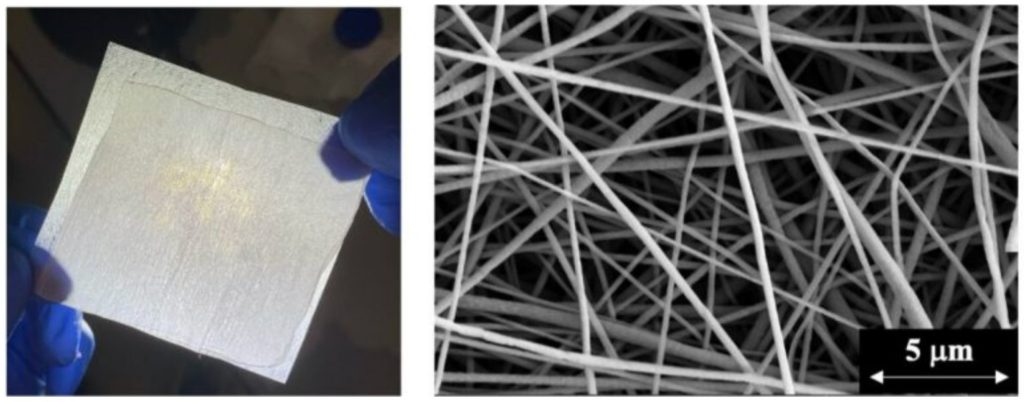Scientists have developed a new filter that can effectively prevent the spread of coronavirus that aims to exceed the performance of the individual protection measures currently on the market.
A filter made of polymeric nanofibers displaced three types of coronavirus protection masks on the market because an experiment conducted by researchers at Riverside University and George Washington showed that it could capture 99.9% of coronavirus aerosols.
- Brief Anger Hampers Blood Vessel Function Leading to Increased Risk of Heart Disease and Stroke – New Study
- New Blood Test Pinpoints Future Stroke Risk – Study Identifies Inflammatory Molecules as Key Biomarker
- Enceladus: A Potential Haven for Extraterrestrial Life in its Hidden Ocean Depths
- New Experiment: Dark Matter Is Not As ‘DARK’ As All We Think
- Scientists in Fear of This New Predator From Red Sea Eating Native Species in Mediterranean
The study was published in Environmental Science & Technology Letters.
“Our work is the first study to use coronavirus aerosols to evaluate the effectiveness of filtering face masks and air filters,” said the author of the paper and assistant professor in the Department of Chemical Engineering and Environmental Sciences at Riverside University, Dr. Yun Shen.
The study compared the effectiveness of surgical and cotton masks, a neck scarf, and nanofiber membranes made by electro-spinning in blocking coronavirus aerosols to prevent airborne transmission.
The cotton mask and neck scarf removed only about 45% -73% of the aerosols. The surgical mask performed better, removing 98% of the coronavirus aerosols, but the nanofiber filter removed almost all of the coronavirus aerosols.
The study of a contagious new virus is dangerous and is carried out in laboratories with the highest degree of biosafety. To date, all pandemic studies on the effectiveness of masks or filters have used other materials that theoretically mimic the size and behavior of coronavirus aerosols.
This new study improved this process by looking at both airborne saline solutions and an aerosol containing a coronavirus of the same family as the one causing COVID-19, but only infecting mice.
The scientists, therefore, produced a filter with a process that created pores with a minimum diameter on the surface of the nanofibers, thus helping to capture 99.9% of the coronavirus aerosols.
The production technique, known as electrospinning, is economical and could be used to mass-produce nanofiber filters for personal protective equipment and air filtration systems. This technique also leaves the nanofibers in an electrostatic charge that enhances its ability to capture aerosols, and the highly porous surface makes it easier to breathe when one is wearing the nanofiber filters.

- Brief Anger Hampers Blood Vessel Function Leading to Increased Risk of Heart Disease and Stroke – New Study
- New Blood Test Pinpoints Future Stroke Risk – Study Identifies Inflammatory Molecules as Key Biomarker
- Enceladus: A Potential Haven for Extraterrestrial Life in its Hidden Ocean Depths
- New Experiment: Dark Matter Is Not As ‘DARK’ As All We Think
- Scientists in Fear of This New Predator From Red Sea Eating Native Species in Mediterranean
Electrospinning can evolve the design and construction of face masks and air filters. The development of new masks and air filters through electrospinning is particularly promising, due to the high efficiency of filtration, economic flexibility, and the ability to meet local needs for masks and air filters, the scientists conclude.
Image Credit: iStock
